Intercept Telehealth Celebrates Critical Care Awareness and Recognition Month
 May 22, 2025
May 22, 2025
Honoring our Heroes
Every May, Critical Care Awareness and Recognition Month offers a moment to reflect on the extraordinary efforts of those behind the virtual monitors. Intercept Telehealth is joining healthcare organizations nationwide to applaud and uplift intensivists, critical care nurses, and frontline intensive care unit (ICU) staff, who provide life-saving care under the most vulnerable circumstances.
As a physician-founded provider of virtual critical care services, Intercept was built to support and elevate the work of these heroes. Through our mission, we deliver round-the-clock, gold-standard critical care to patients, no matter where they are, while supporting bedside teams with top-tier technology, real-time interventions and evidence-based protocols.
The Backbones of Critical Care
Critical care medicine is one of the most demanding and high-stakes specialties in healthcare. Patients in the ICU often face multiple organ failures, severe infections or complex trauma. ICU specialists have mastered a set of skills allowing them to make decisions under intense pressure where precision is paramount.
More than 5 million patients are admitted into the ICU every year in the United States alone, which equates to more than 13,000 patients per day. The typical intensivist to patient ratio in the country is 1:12, nearly hitting the maximum recommendation of 1:14; anything larger than that has been associated with negative effects on patient care, staff wellbeing and resident education.
Yet, across the country, many hospitals continue to struggle to staff their ICUs with board-certified intensivists. Whether due to location, deflating budgets or burnout, this gap in access has a real impact on outcomes.
Leapfrog’s ICU Physican Staffing (IPS) Factsheet suggests that over 54,000 deaths that occur in the ICU could be avoided if urban hospitals were staffed with board-certified intensivists who were present during daytime hours to provide clinical care exclusively within the ICU.
Our Impact
Intercept was founded to tackle this need head-on. With the expertise of our ICU staff, Intercept has been proven to improve patient outcomes, expand critical care staffing, maximize progression of patient flow, achieve best practice compliance, increase earnings, and enhance data analytics and reporting.
The results speak for themselves. Here is what hospitals working with us have seen:
- 30% reduction in ICU mortality rates
- 30% reduction in length of stay
- 16% increase in the likelihood of discharge to home
- 37% decrease in patient transfers
- 40% improvement in patient engagement scores
However, the force behind these milestones is not our name, but our incredible team of ICU professionals in tele-ICU, tele-neurology, tele-sepsis, tele-stroke and virtual nursing.
While this month is reserved for critical care awareness and recognition, we’re proud to spotlight our ICU team year-round.
“Critical care is a true team sport,” said Dr. Diego Reino, MD, FACS, founder and CEO of Intercept. “It takes constant communication, trust, and a shared commitment to excellence. We’re honored to work alongside some of the most skilled and dedicated clinicians in the country.”
The Future of Virtual Healthcare
Our ICU staff is taking us one step closer to a future where no hospital has to choose between budget and expertise, or location and quality. We will continue to evolve alongside the healthcare realm to continue supporting its providers and patients.
Technology continues to be an enhancement, not a replacement. To keep operating as a well-oiled machine, every member of our team works in sync to save lives and provide compassionate care.
Thank you to our ICU Providers!
We’d like to extend our deepest appreciation to all our intensivists and critical care providers who make the impossible happen and put themselves aside to save the lives of others. Their impact is not measured and witnessed through numbers, but in families supported and communities served.
We invite you to express your own appreciation by delivering a handwritten card, providing some words of gratitude when you find yourself interacting with an ICU team member, or highlighting their stories on social media using the hashtags #CritCareMonth and #ICUProud.
Sometimes, just a few kind words are all it takes to make a difference. Critical care providers have some of the highest rates of burnout of all specialties, with numbers as high as 70% for physicians and 80% among nurses. Burnout can make someone feel empty, unmotivated, and detached, which can lead to depression, anxiety and even self-harm, so don’t wait to check up on your team.
“To every intensivist, ICU nurse, respiratory therapist, and bedside clinician: thank you,” said Dr. Reino. “Your dedication, resilience, and teamwork inspire all of us at Intercept. You are the reason patients have another chance, and families have hope. We’re honored to support you and proud to walk alongside you in this essential work.”
To learn more about supplementing your on-site team with Intercept Telehealth, reach out today. We’ll help you understand more about how a tele-critical care program could work within your unique practice and also answer any questions you may have about tele-critical care.



